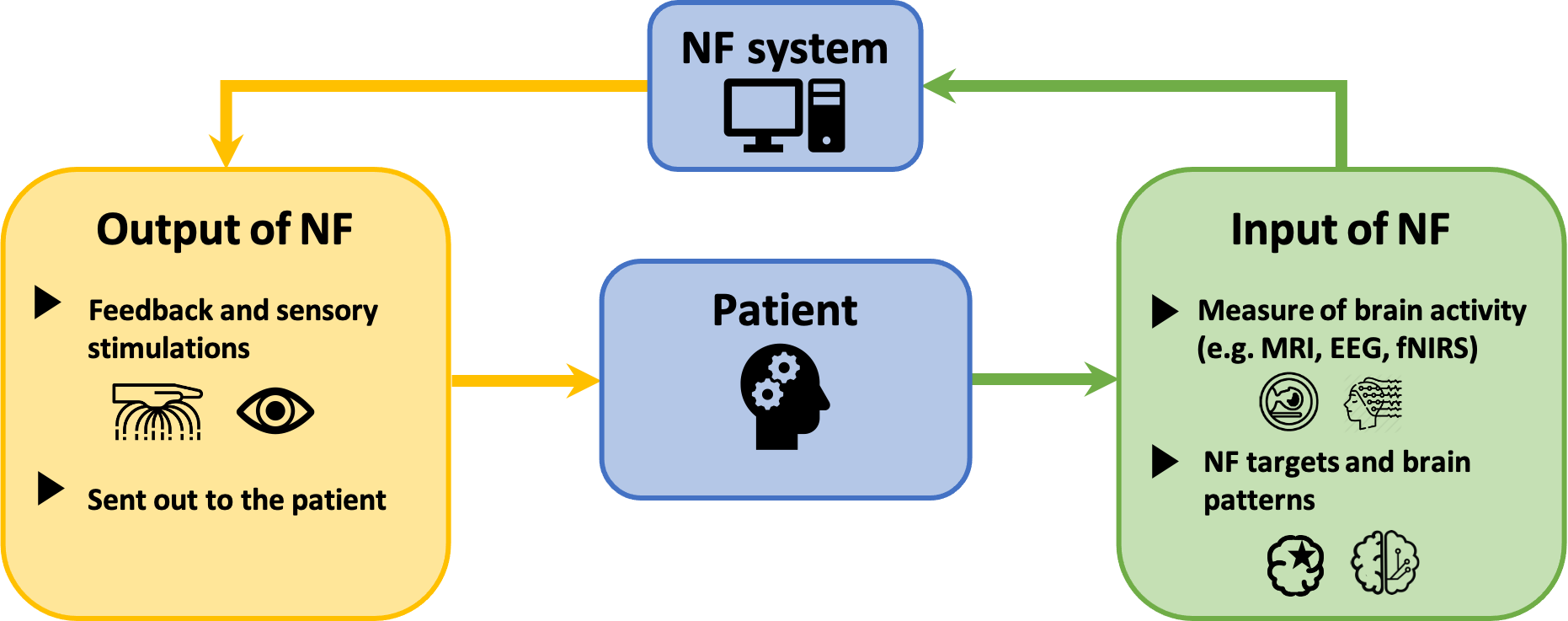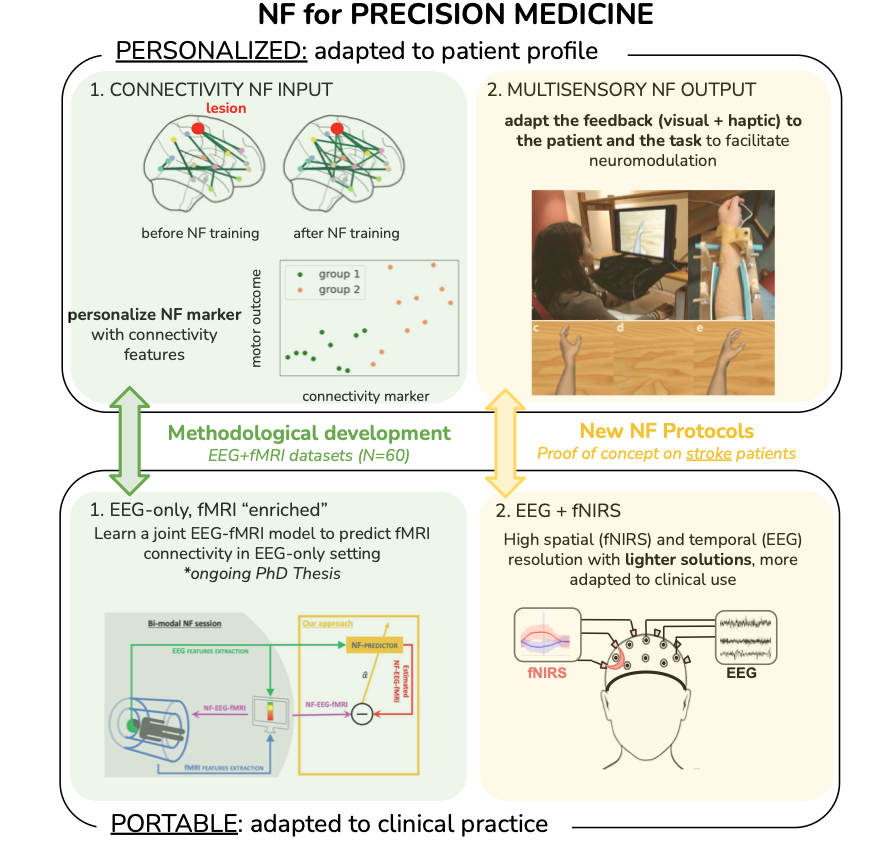PEPERONI 2022-2024: Portable and Personalized Neurofeedback for Stroke Rehabilitation

Neurofeedback (NF) consists in presenting a person with a stimulus directly related to his or her ongoing brain activity. NF can be used to teach subjects how to regulate their own brain functions by providing real-time sensory feedback of the brain “in action”. Recent studies showed that NF is promising for the treatment of various neuronal pathologies. Electroencephalography (EEG), which has historically been the preferred modality for NF, suffers from a lack of specificity, preventing the transfer of this treatment to clinical use. On the other hand functional Magnetic Resonance Imaging (fMRI) has a good specificity, but it is a cumbersome and expensive modality, making it difficult to develop personalized protocols. In this project, we aim to develop a methodological and experimental framework opening the door to a more portable and personalized NF, for easier and effective clinical use, with a focus on post-stroke motor rehabilitation. We propose to organize the project in four work packages, grouped in two axes. The following figure summarizes the organization of the project.

Research Objectives
In this project, entitled “Portable and Personalized Neurofeedback for Stroke Rehabilitation”, we will explore different research axes that we can group into two main objectives. The first one concerns the adaptation of the NF protocol to each patient in order to improve the chances of achieving an optimal rehabilitation. We will explore two approaches: the integration of brain connectivity information (NF input) in the NF protocol, and the diversification of stimuli (NF output), in particular by studying haptic stimuli. The second objective will be to make NF protocols more portable, by progressively freeing ourselves from fMRI: a thesis is already in progress and aims at using machine learning methods to predict the fMRI score, finally, the use of fNIRS as a substitution device to MRI will be introduced.
